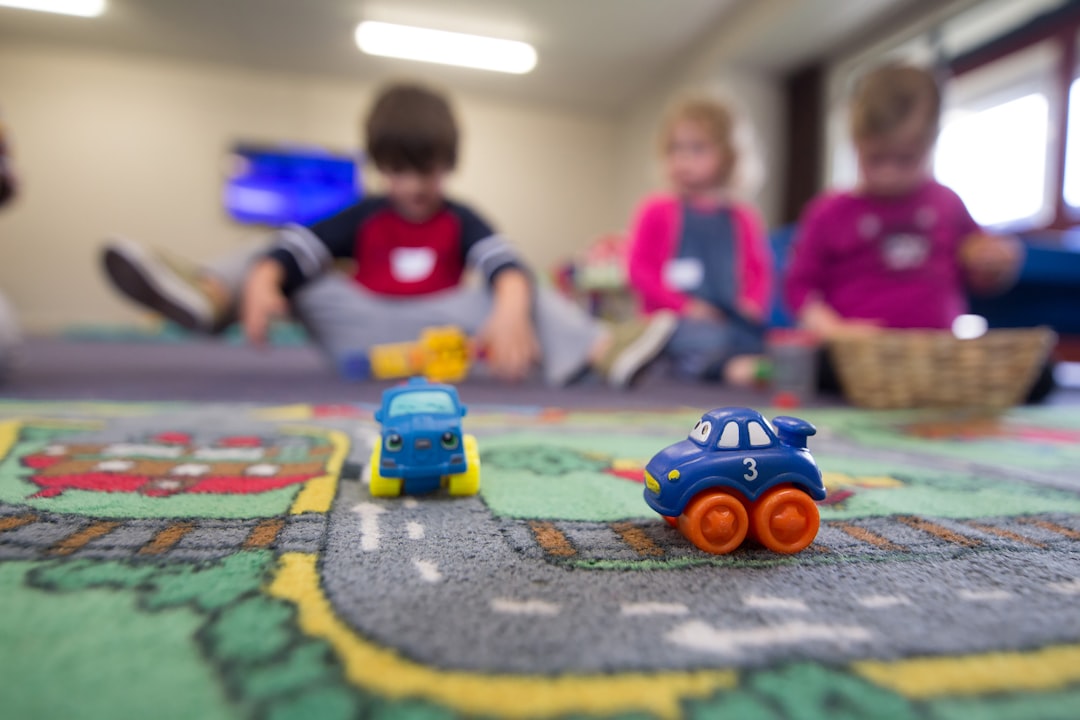In Newark, NJ, childcare staff play a crucial role in preventing and recognizing various forms of child abuse, including physical, emotional, sexual, and neglectful harm. They must be trained to identify subtle indicators such as behavioral changes, unusual language use, or hygiene issues. Local daycare abuse attorneys emphasize the legal obligation of daycares to safeguard children, with strict state laws in place. Comprehensive training, ongoing education, clear reporting procedures, and open communication are essential tools to foster a culture of vigilance and well-being, protecting infants and toddlers from potential abuse. Daycare centers should prioritize these measures to ensure long-term safety, backed by the expertise of daycare abuse attorneys in Newark, NJ.
In Newark, New Jersey, ensuring the safety of children in daycare settings is paramount. This article explores the critical role of training staff to recognize and prevent daycare abuse. We delve into various types of abuse, signs to watch for, and effective training methods. Additionally, we discuss legal obligations, post-training strategies, and how to build a safe environment. Understanding these aspects, especially with the guidance of experienced Newark daycare abuse attorneys, is essential for creating a protective network around our city’s youngest residents.
Understanding Daycare Abuse: Types and Signs to Look For

In the context of childcare, recognizing and preventing abuse is a paramount concern. Daycare abuse can take various forms, including physical harm, emotional maltreatment, sexual abuse, or neglect. It’s crucial for staff in Newark, NJ to be equipped with the knowledge to identify these different types of abuse. Physical indications like unexplained bruises, burns, or cuts may signal acute injuries from assault or neglect. Emotional signs include excessive anxiety, fear of certain individuals, or sudden changes in behavior, suggesting emotional trauma.
Understanding potential red flags is essential for daycare staff members. Signs of sexual abuse can be more subtle, such as unusual knowledge or use of adult language, inappropriate behavior towards adults, or sudden changes in eating habits. Neglect, a form of abuse that involves the failure to meet a child’s basic needs, might manifest as frequent sickness, severe hygiene issues, or extreme weight loss. Daycare abuse attorneys in Newark NJ highlight the critical role staff play in safeguarding children and emphasize the need for continuous training to recognize these subtle yet significant signs.
The Role of Newark Daycare Staff in Prevention and Intervention

Newark daycare staff play a pivotal role in preventing and intervening in child abuse, making them crucial guardians for vulnerable infants and toddlers. Their keen observation skills are essential tools in identifying potential signs of abuse or neglect—from physical injuries to behavioral changes. Staff members are often the first line of defense, acting as trusted adults in children’s lives who can recognize subtle cues that something is amiss.
Training in this area equips them with the knowledge and confidence to report suspected cases to daycare abuse attorneys in Newark, NJ, and relevant authorities promptly. This proactive approach not only ensures the safety of the children under their care but also contributes significantly to the prevention of further harm, making the daycare environment a safe haven for growth and development.
Training Methods: Equipping Caregivers with the Right Tools

Training methods play a pivotal role in empowering Newark daycare staff to recognize and prevent abuse. Equipping caregivers with comprehensive training is essential, as it provides them with the necessary tools and knowledge to identify potential signs of abuse or neglect. This involves interactive workshops, webinars, and hands-on simulations that cover various scenarios, including physical, emotional, and sexual abuse.
The training should focus on educating staff about child development milestones, typical behaviors, and red flags that might indicate a serious issue. Daycare abuse attorneys in Newark NJ often emphasize the importance of fostering a culture of reporting and open communication. By encouraging staff to speak up and report any suspicions immediately, daycare centers can ensure timely interventions and better protect children’s well-being.
Legal Implications and Obligations for Daycares in NJ

In New Jersey, daycares have a legal obligation to protect children in their care and ensure their well-being. The state has stringent laws regarding child abuse and neglect, and daycare staff members are required to be vigilant in recognizing potential signs of abuse or maltreatment. Failure to comply with these regulations can have severe legal implications, including liability for negligence and possible criminal charges. Daycare abuse attorneys in Newark, NJ, emphasize that staff must undergo comprehensive training to identify various forms of abuse, such as physical, emotional, sexual, and neglectful abuse. They also play a crucial role in reporting suspected cases to the appropriate authorities, ensuring that children receive the necessary protection and support.
Building a Safe Environment: Post-Training Strategies for Long-Term Protection

After training, creating and maintaining a safe environment is crucial for protecting children from potential abuse. Daycare centers in Newark, NJ should implement robust policies and procedures that reinforce the lessons learned during staff training sessions. This includes establishing clear protocols for reporting suspicious behavior, regular check-ins with parents to discuss child welfare, and fostering an open culture where staff feel empowered to speak up about any concerns.
Long-term protection extends beyond the initial training period. Daycare abuse attorneys in Newark NJ recommend ongoing education and support for staff to stay vigilant against signs of abuse. Regular refresher courses, peer mentoring programs, and access to counseling services can help staff remain alert and equipped to handle situations that may arise. By prioritizing a culture of safety and well-being, daycare centers can create an environment where children are not only cared for but also protected from any form of harm or abuse.






